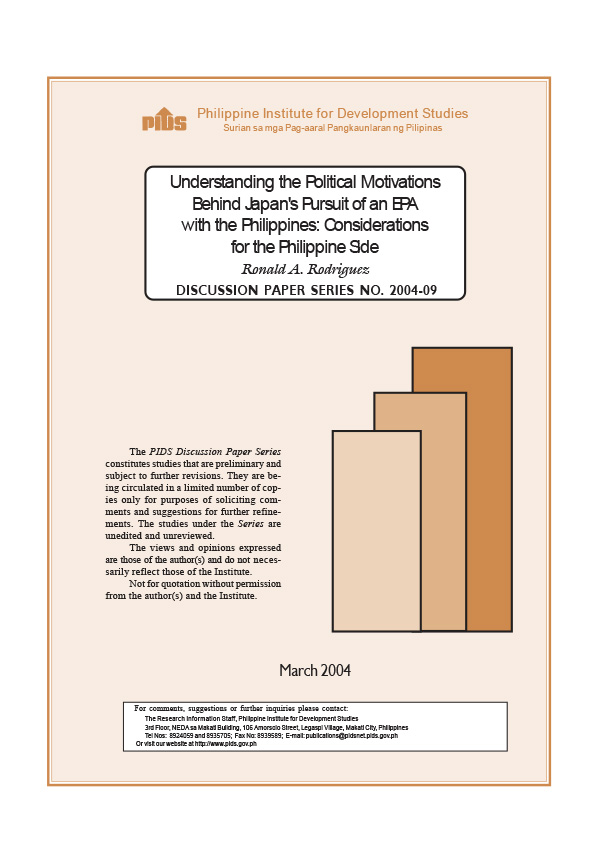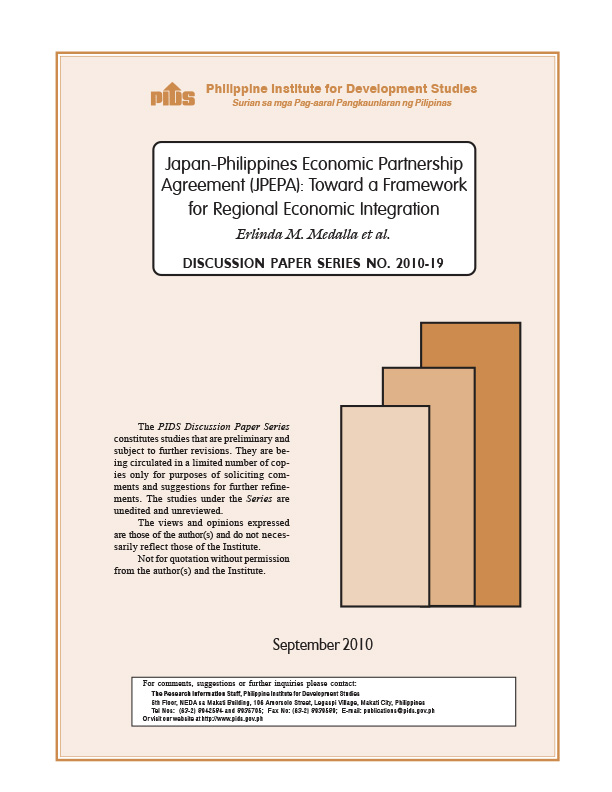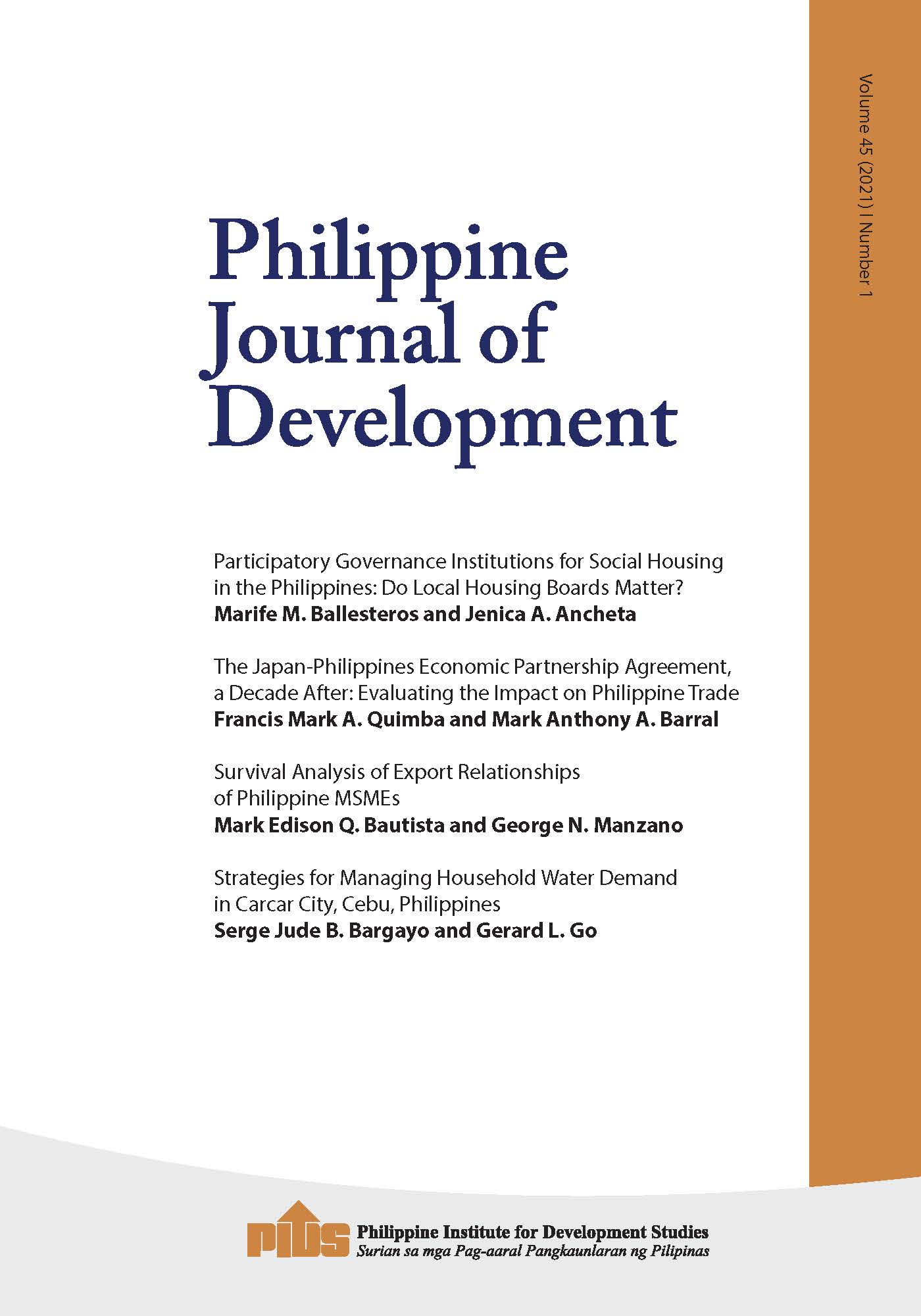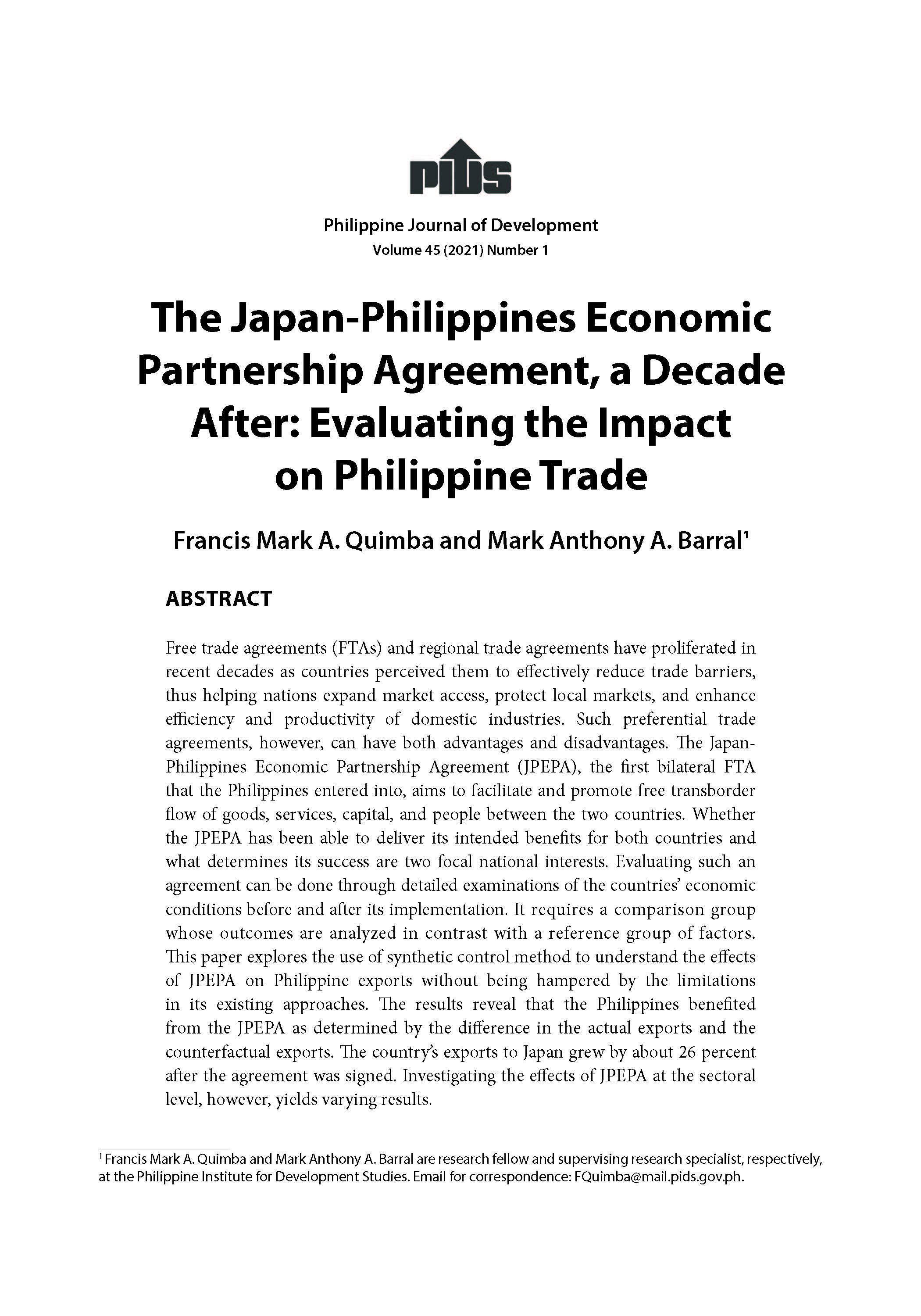This study examines the historical dimension of Japan’s foray into regionalism and bilateralism--a radical shift from an exclusively multilateralist orientation to the more strategic and flexible “dual approach.” It explains that such policy change draws motivation from certain developments taking place both in and out of Japan, including but not limited to, the country’s lingering economic decline, the unforeseen turn of events in the World Trade Organization (WTO), and the challenging ascent of China. The study clarifies that Japan’s choice of the Philippines as one of the first countries to negotiate with for a possible EPA after Singapore does not necessarily reflect Japan’s bilateral priorities in Asia. Nevertheless, Japan’s EPA with a long-time ally like the Philippines figures as an important piece of Japan’s strategic interest to forge a Closer Economic Partnership with a fully integrated Southeast Asian market. As a result of this realization, the study challenges Japan, Southeast Asia and the Philippines to prove the real depth of their relations with one another. In spite of the many difficulties that can be anticipated in the process of forging EPAs, this study is convinced that they will all benefit from any attempt to transform many painful realities into new opportunities.













